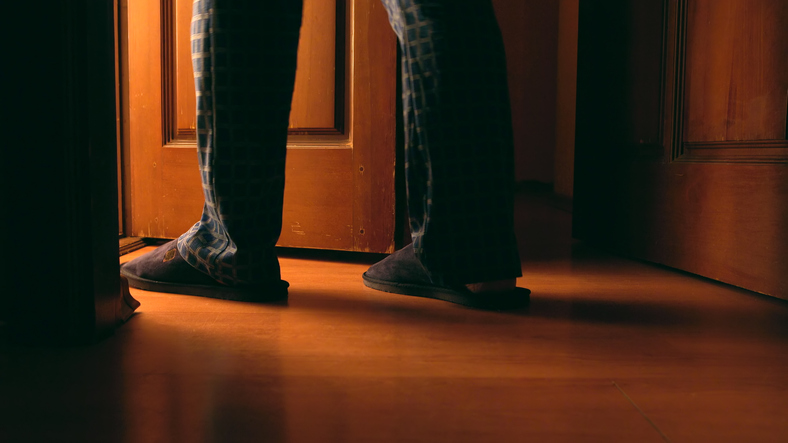
Twenty-five to thirty-five percent of people with dementia have disrupted sleep patterns. This can place a lot of stress on families and may, over time, precipitate placement in a care facility.
Dementia often affects the sleep/wake cycle. People in the middle or later stages of the disease are prone to getting up at night. They may wander. They may nap more during the day and be more restless and confused in the late afternoon/evening (a phenomenon known as “sundowning.”)
What you can do for the person with dementia
If you are a caregiver of someone with dementia, first make sure that the person is checked out medically. It’s possible that something other than dementia is disrupting their sleep. Possible causes include anxiety, depression, medication, and pain. Treating these causes may improve sleep.
If the principal cause appears to be dementia, there are still ways to address the issue. In the early stages of dementia, behavioural and environmental changes may help, but as the disease progresses and sleep problems are more severe, medications may be necessary. Discuss this with your doctor. Everybody’s situation is unique, and it warrants a good assessment.
Here are some general strategies that are known to improve sleep patterns:
- Encourage physical activity during the day
- Maintain regular wakeup and sleep times
- Discourage long naps during the day.
- Avoid nicotine, caffeine and alcohol.
- Provide a small snack before bed. This is often relaxing.
- If bathing is stressful or resisted, do it earlier in the day. If it’s soothing, try it pre-bedtime.
- Ensure the temperature of the bedroom is not too warm or cold for sleep.
- Raise the body temperature (perhaps with a warm blanket) and then cool down. This can encourage sleep.
- Discourage TV or other electronics that can stimulate the brain before bedtime.
- If the person wakes, do your best to stay calm and try to guide them back to bed, gently reminding them it is sleep time.
- Have an occupational therapist assess the home to make sure it’s as safe as it can be. Devices like sensors, chimes and high locks may help to improve safety.
What you can do for yourself
If you’re looking after someone who’s often awake at night, chances are your own sleep is being disrupted. This can impact your physical and mental health. Your patience and energy can be limited. It’s important to find a way to recharge.
Day programs can be invaluable in getting the person you are caring for out of the house for a bit and allowing you to have a real break. Taking a short nap or resting in a quiet environment can break the fatigue cycle. If you can afford it, hire a caregiver for some part of the day.
To find respite options in your part of Ontario, use the Find Services tool.
Related articles:
- New app helps family caregivers manage dementia-related behaviours in the moment
- When friends drift away: staving off loneliness when caring for someone with dementia
- Seasoned family caregivers share insights on looking after someone with dementia
Nira Rittenberg is an occupational therapist in private practice who specializes in geriatrics and dementia care.

